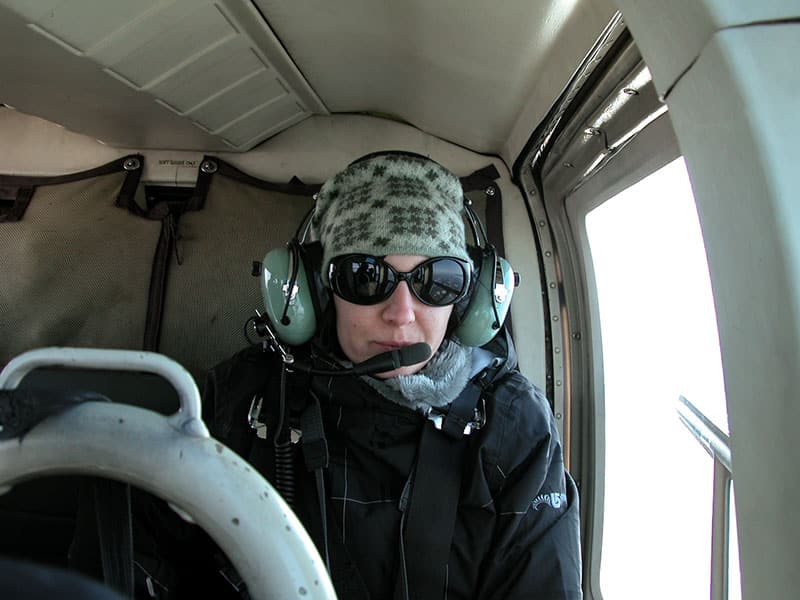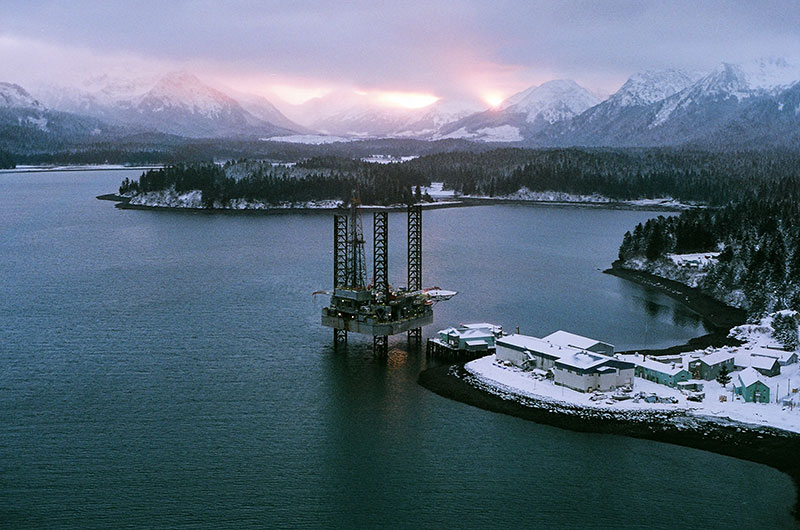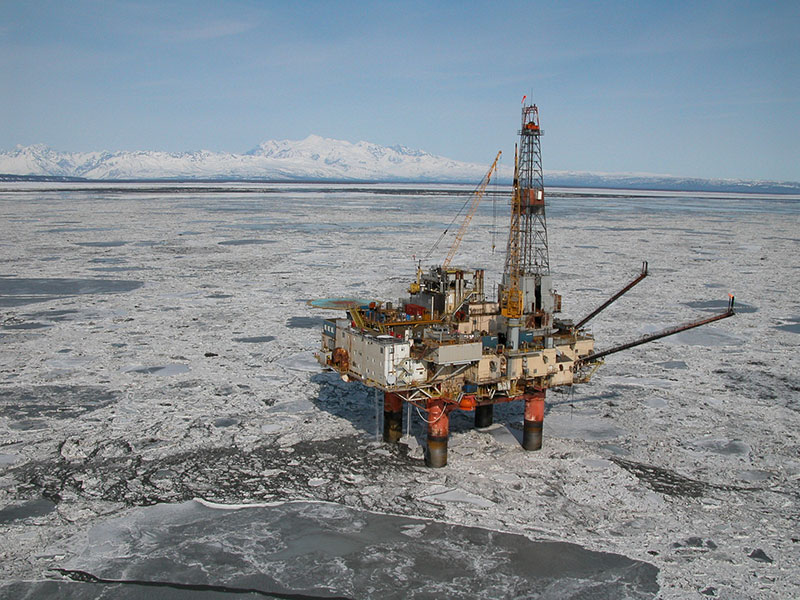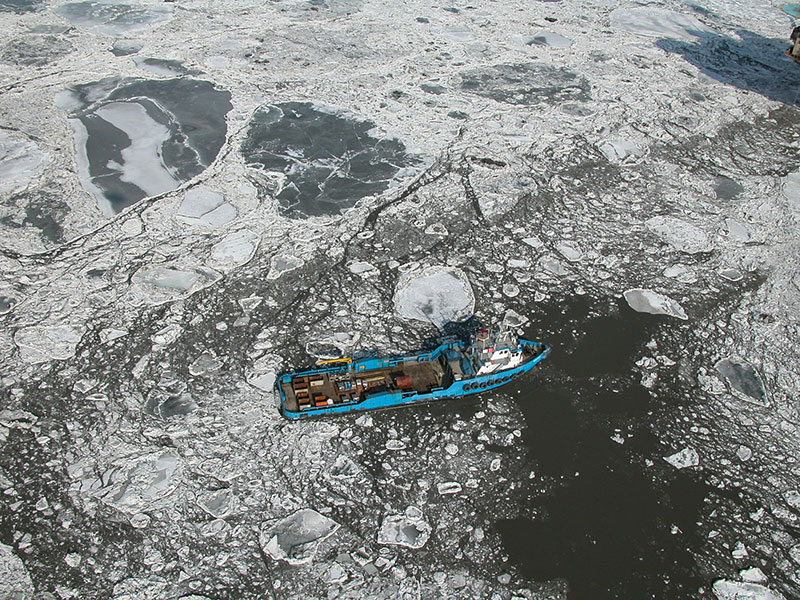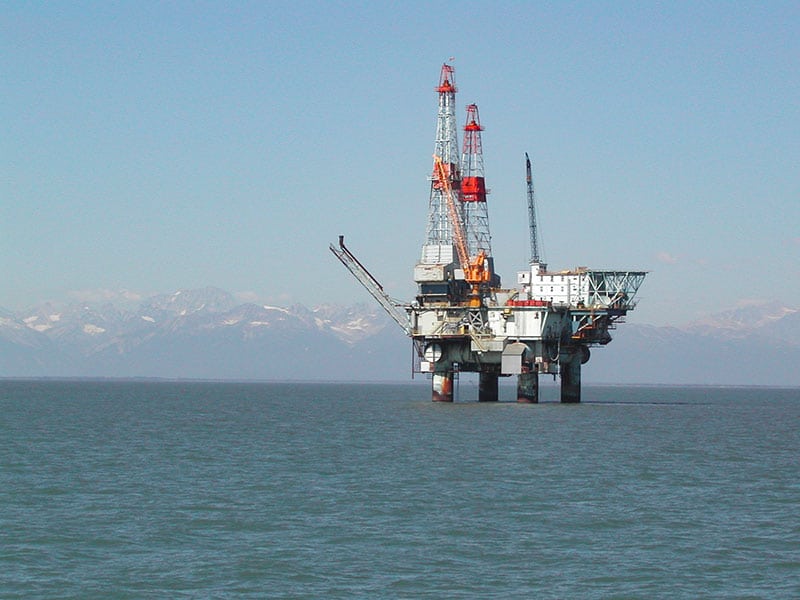Barge grounding shows importance of response coordination
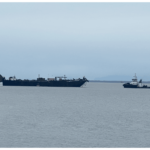
Maintaining safety and preparedness in Cook Inlet takes vigilance and, more importantly, communication. The recent grounding of CISPRI Barge 141 demonstrates the quality of that communication in Cook Inlet between partners in industry, government and public stakeholders.
Strong winds overnight on September 29th pulled the 257 ft. response vessel (Barge 141), owned and operated by Cook Inlet Spill Prevention and Response, Inc (CISPRI) from its moorings just offshore from the Offshore Systems Kenai (OSK) dock in Nikiski.
The barge went aground and sustained damage to its hull, affecting the barge’s storage tanks after coming to rest on some beach debris. The grounding meant that nearly 60,000 barrels of on water storage capacity and the response equipment stored on board, were now unavailable if needed for a response to a spill incident.
As CISPRI crews worked to off load spill response equipment in preparation to refloat Barge 141 and transit to Seward for needed repairs, behind the scenes, officials with the U.S. Coast Guard, Alaska Department of Environmental Conservation (ADEC), CISPRI, and Marathon Petroleum were working to identify all options available to replace or shore up those response capacities and begin giving regular updates to CIRCAC’s membership.
Commenting on Marathon’s partnership with the Cook Inlet community, Craig Hyder, Marathon Petroleum’s Corporate Emergency Preparedness Manager said “It is critical that we work with our stakeholders and agency partners to maintain readiness for response. Keeping CIRCAC informed on our mitigation efforts to this issue was a critical part of being responsible partners in the Inlet.”
Large tank barges are a valuable asset, both in terms of their capabilities and cost. However, there simply aren’t many available on short notice. It was a serious logistical undertaking for CIPSRI and Marathon to develop a workable alternate plan, which was done without interruption to Marathon’s regular operations.
By October 1st, ADEC and the Coast Guard had approved a plan that would meet those requirements and ensure that no incident would have anything less than a full response.
Throughout the incident CISPRI and Marathon provided updated information on the barge’s grounding response, repair, and mitigation efforts to CIRCAC staff to be shared with our Board and member organizations.
Vinnie Catalano, CIRCAC’s Director of Operations commented, saying, “This is another example of industry’s commitment to coordinated spill response and to the people of the state.”
Repairs to Barge 141 were completed in early November and the barge was placed back in service by mid-month.




